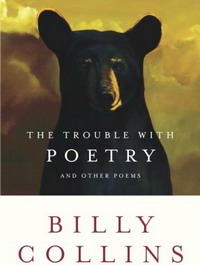This month's prompt is to write of an occasion when you were "in the moment" completely. We often hear of this from musicians, artists, athletes - but it occurs often enough for all of us, if only for that moment, in our everyday lives.
In his always interesting "American Life in Poetry" column, Ted Kooser talks about our model poem, "The Woodpecker Keeps Returning" by Jane Hirshfield (After - Harper Collins, 2006).
His words: "the speaker discovers that through paying attention to an event she has become part of it, has indeed become inseparable from the event and its implications. This is more than an act of empathy. It speaks, in my reading of it, to the perception of an order into which all creatures and events are fitted, and are essential."
Hirshfield gives workshops in this - "Poetry as the Practice of Attention" If you want to read a bit more about Jane, try http://blogs.csmonitor.com/the_poetic_life/2005/05/ or to read a few other poems by her, go to http://www.poets.org/poet.php/prmPID/563
There is a term "zanshin," which means “the remaining mind” and also “the mind with no remainder.” I think this is related to our prompt, too. This is the mind of complete action - the moment in Zen archery after you release the arrow, in painting after the brush stroke when hand and brush lift, that moment after you release the ball... it's complete follow-through.
There's a book by Brenda Ueland, If You Want to Write, that talks about being "in the moment" (but not being lost in it) to maximize creativity - to be fully present in an intuitive activity, not an intellectual one. Ueland compares this kind of creativity and connection to playing a musical instrument - sometimes you play at it and sometimes you play in it. Great musicians play in it (even if not always technically perfect). Perfection of technique may not be obtainable, but a kind of "perfect" connection can exist between the reader and poet.
It's interesting it was originally published in 1938 because it sounds contemporary. here are a few bits from it.
"Everyone is talented, original, and has something important to say."
"The imagination needs moodling--long, inefficient, happy idling, dawdling and puttering."
"Think of telling a story, not of writing it."
"When you revise, do not try to think of better words, more gripping words. The problem is that it is not yet deeply enough imagined."
There's one chapter called "Why Women Who Do Too Much Housework Should Neglect It for Their Writing."
Of course, Zen is often used very loosely (or incorrectly) as a way of describing other practices, like being in the zone in golf, tennis or yoga. Better to stay with the literary - read "On Poetry and the Reallocation of Concentration: Learning to Forget" by Beth Ann Fennelly, who asks, " What exactly is happening in our brains when we cease to become conscious of time? "
 Jane Hirshfield was born in New York City in 1953. She graduated from Princeton University in 1973. Hirshfield has been a lecturer in creative writing at the University of San Francisco and a visiting professor at the University of California, Berkeley. She serves as a member of the faculty of numerous writers conferences and in-school programs, including California Poets in the Schools, 1979-85, and the Port Townsend and Napa Valley Writers Conferences.
Jane Hirshfield was born in New York City in 1953. She graduated from Princeton University in 1973. Hirshfield has been a lecturer in creative writing at the University of San Francisco and a visiting professor at the University of California, Berkeley. She serves as a member of the faculty of numerous writers conferences and in-school programs, including California Poets in the Schools, 1979-85, and the Port Townsend and Napa Valley Writers Conferences.Her books of poetry include The October Palace , Of Gravity & Angels and The Lives of the Heart. Nine Gates: Entering the Mind of Poetry is her excellent book of essays on reading poetry, writing and her approach to life.







